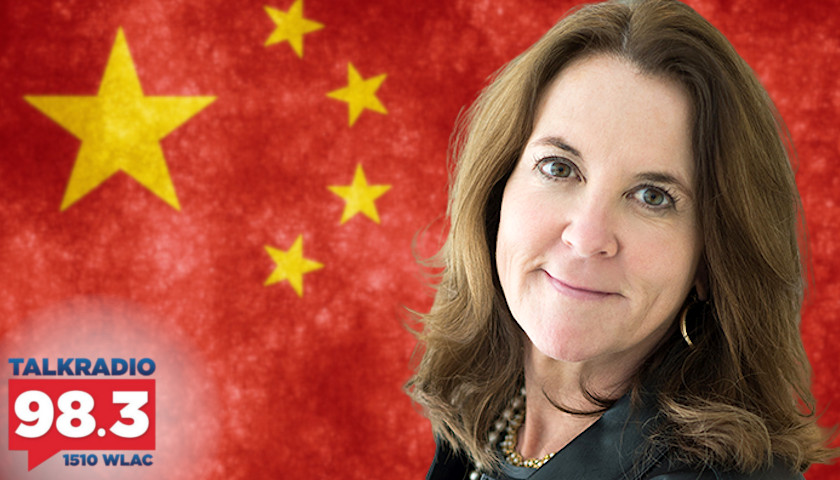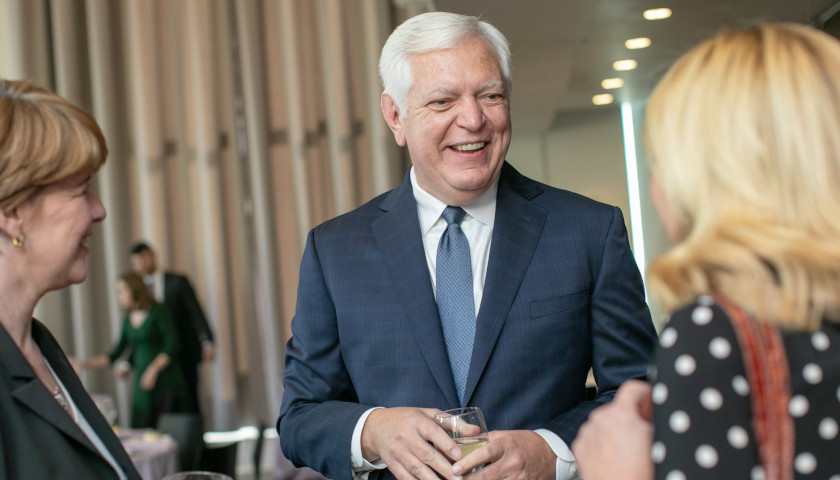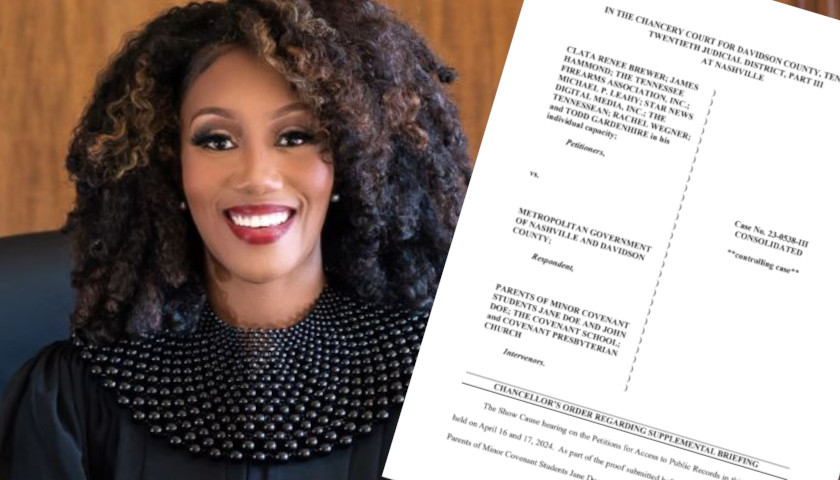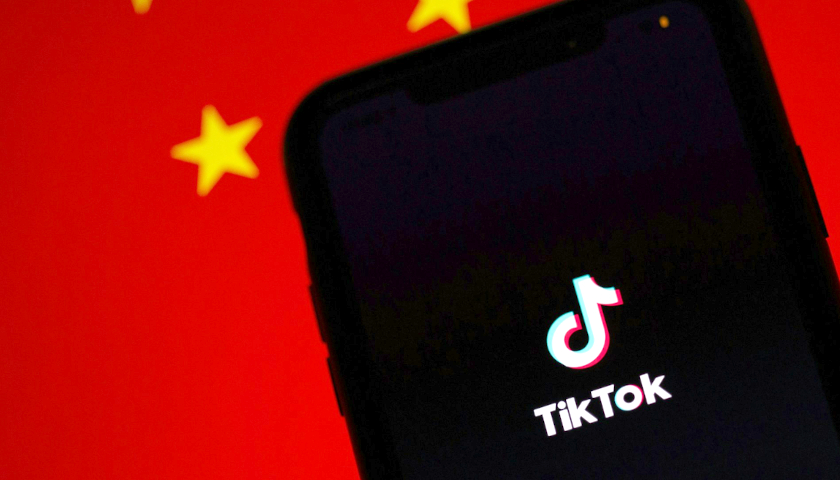Friday morning on The Tennessee Star Report with Michael Patrick Leahy – broadcast on Nashville’s Talk Radio 98.3 and 1510 WLAC weekdays from 5:00 a.m. to 8:00 a.m. – host Michael Patrick Leahy was joined on the line by Nadia Schadlow who is an American academic and defense-related government officer who briefly served in 2018 as an assistant to the President and Deputy National Security Advisor for Strategy in the Trump administration.
During the second hour, Schadlow talked about her recent article at The Atlantic that has gained popularity since it was published last week. She explained the three main points to her article which examines Trump’s hard stance on China, how nation-states are significant and takes a look at international organizations.
Leahy: We are joined now by Nadia Schadlow, former deputy national security advisor for strategy in the Trump administration. Welcome, Nadia.
Schadlow: Hi Michael. How are you this morning?
Leahy: I’m great. Well, we have something in common. You went to Cornell in Ithaca. I’m from upstate New York not too far from Ithaca. My question for you first is under which national security adviser did you serve? Was it John Bolton or one of the predecessors?
Schadlow: No. I served under his predecessor H.R. McMaster.
Leahy: H.R. McMaster. OK. What was it like being in the White House under H.R. McMaster?
Schadlow: It was actually great. He ran a really strong team. We all worked together. It was very collaborative. He’s a great leader. His philosophy was that the role of the national security council is to bring options to the president to make sure that everyone is heard because people in any administration always have competing and different ideas. And the role of the national security adviser is to make sure the president hears the best of the ideas. Or at least hears the range of the ideas right? Because in the end, it’s his decision of which policy to pursue.
Leahy: When you were there Nadia, was your office physically in the White House or across the street in the old grey executive office building?
Schadlow: It was in the grey office building but it’s part of the complex.
Leahy: Yeah. I know. I know.
Schadlow: It’s basically a little walkway that leads to the West Wing. And then the West Wing is where the National Security Advisers office is. The West Wing is surprisingly small. People are surprised when they come in. The ceiling is pretty low. Most people who come in are quite surprised.
Leahy: I know. Now you have this article in The Atlantic which is not exactly what you would call a conservative publication. Yet they allowed you to write there. You have this fascinating article “Consider the Possibility That Trump is Right About China.” Tell us how you got on as a contributor to The Atlantic and how they let you write this stuff. Then tell us about the article.
Schadlow: I think it’s great that publications veer away from their maybe more traditional authors and writers and actually try to provoke debate and discussion. I think it’s a really good thing. I was really happy with my experience at The Atlantic. Great editors. Very easy to work with. I was really pleased. I was completely surprised that it would attract so much attention.
I think what’s nice is in the future of other publicans that tend to one point whether it’s to the right or the left might shake things up a little bit. I think it’s a good thing. I think they wanted a different perspective basically. Most of what’s written in there is a disdain for the president and some of the changes he’s trying to make.
And I think they just wanted a different perspective. I think it probably showed that they were right in their thinking because it did get a lot of re-tweets and things like that. In my view, I wasn’t saying anything special. To me, it was just obvious. I made essentially three points in the article. One, that the president had been right to get tough on China or at least to look at what had been happening over the past 15 years.
I tried to make the point that it was actually both Republicans and Democrats over the years that had been increasingly concerned about what had been happening. But President Trump had decided said, “Hey, I’m going to try a different set of tactics to get changes for the United States.” The second point I made was that nation-states matter. They are the ones that hold the power in the world.
They have the money. They have armies. They have militaries. And they have power, nation-states. As opposed to broader international organizations. And then the third point I made was let’s look at how international organizations are working and what kind of outcomes are they achieving right? Not just the institution but what are they achieving in practice? What are the outcomes that they are achieving? Those are just three straight forward points and for some reason, they resonated.
Leahy: It’s common sense to me. If you look at how China has lied totally to the rest of the world about the origin of the coronavirus pandemic and how it could spread. I mean it seems obvious to me and then we’re all stuck with the global supply chain problems with having all of our pharmaceuticals made there. And they are using that to kind of hold us hostage. It makes common sense to me. Why do you think it was so controversial.
Schadlow: I think it was at a time when everyone broader consensus emerged because everyone is being impacted by COVID-19 by corona and everyone is seeing what is happening. So you just have a broader swath of people saying, “Hey what’s going on?” I think the supply chain issues are complicated. I’m not an economist or an expert.
But I think overall this administration for having renewed attention to what I mentioned in the article the argument of hyper-globalization that may be in some cases it went too far. There are elements that the world is linked together and we are integrated. But its a complex world. And there were some losers to globalization. There were some people that lost out.
And so this administration has forced a debate about it that’s getting sorted out now about how things will change. I think we will see changes in supply chains. Another piece that a co-author and I focused on what is called flexible manufacturing and that provides a way for manufacturing plants to change more quickly as needs adapt.
And that is interesting enough the Chinese have actually made a concerted effort to invest in. They have a plan called Made In China 2025. It’s a very interesting plan. It’s public. They identify 10 areas of priority investments and flexible manufacturing is one. That’s something we might take a look at as well. People have tried but it’s not a new concept. But it hasn’t been prioritized here.
Leahy: So what does a former Deputy National Security Adviser do? So you were there about a year and then you were part of the team that left. Is that how it worked?
Schadlow: Basically. I stayed on a bit and helped to transition the new team. Essentially my job was kind of specific to the development and the delivery of the national security strategy. So that’s a document that every administration has to put out when they get into office. Or they are supposed to. The Trump administration did get it done earlier than most.
We wanted to get it done in the first year so it could set a strategic direction and say here’s what we intend to do and here’s why. Basically in the broad national security field. But it talked about domestic areas as well. It was ensuring America’s prosperity. Advancing American influence. It had a national security component. It addresses a whole range of areas. And that was my specific job. But any job in the White House in the national security council you get pulled in all different directions essentially.
Leahy: Are you with the Hudson Insitute now?
Schadlow: Yes. I’m now with the Hudson Institute. I’m a senior fellow there. We write and comment and try to influence policy as all think tanks do. But essentially provide knowledge. Ideas. In government, everything moves so fast that I think the strength of our system is that we have an outside network of people who are always reading, studying, working, talking to people, talking to experts and becoming experts. And that contributes to better policy ideas.
It’s really the strength of our country and most countries don’t really have that vibrant network of what we call think tanks. They are great places to go to and get more information. Hudson has a website and lots of reports. Some people are skeptical about reports. But I think ideas do matter. They matter and they are debated and people think about them. Some times people even changed their minds.
Leahy: Will The Atlantic invite you back to write some more articles for them?
Schadlow: I’m not sure. We’ll have to see. Maybe they will.
Leahy: Well here at The Tennessee Star you have an open invitation to write any article you want. We will publish it at The Tennessee Star. We have pretty wide traffic around the country not just here in Tennessee.
Schadlow: Yeah. I welcome the chance. I’ll start thinking. That’s a great opportunity. And it’s a great opportunity to talk to people in different parts of the country because I’m here in the Northeast.
Leahy: I think we have a mutual friend at the Hudson Institute. Part of that group, Nina Shea.
Schadlow: Oh yeah. Nina is great.
Leahy: Isn’t she fantastic? She’s a very brave person.
Schadlow: Very brave and an example of how ideas and writing and getting out there and describing what’s happening in the world matters. She’s had a huge influence on religious freedom and identifying countries that don’t respect it and how bad that is for the country and the people.
Listen to the full second hour:
– – –
Tune in weekdays from 5:00 – 8:00 a.m. to the Tennessee Star Report with Michael Patrick Leahy on Talk Radio 98.3 FM WLAC 1510. Listen online at iHeart Radio.
Photo “Nadia Schadlow” by the Hudson Institute.








